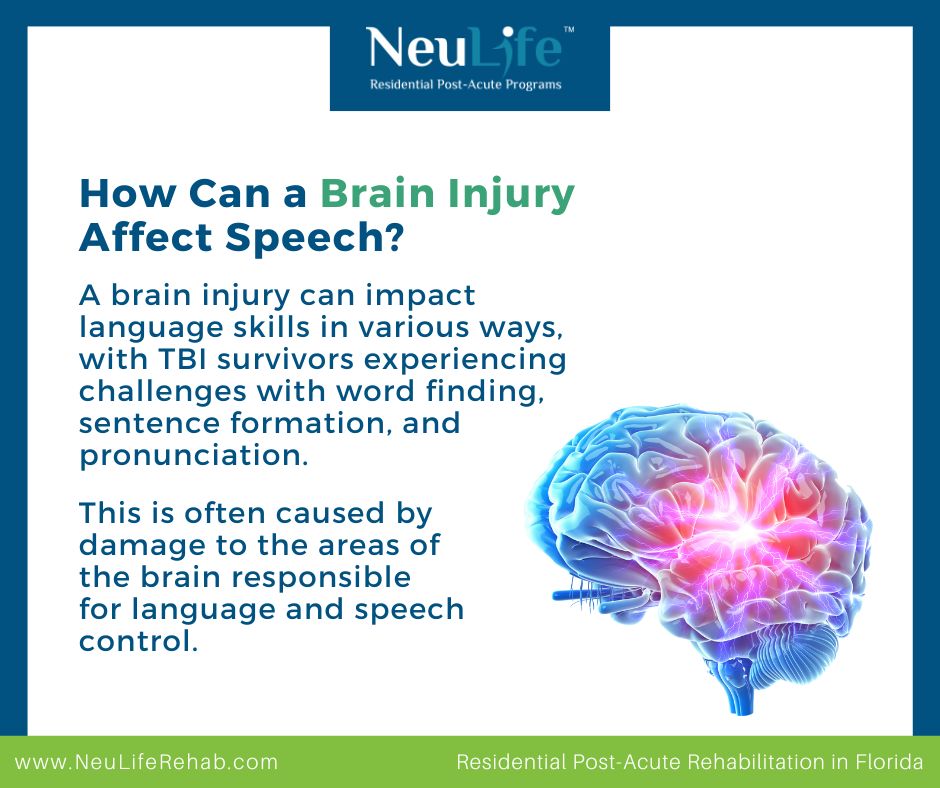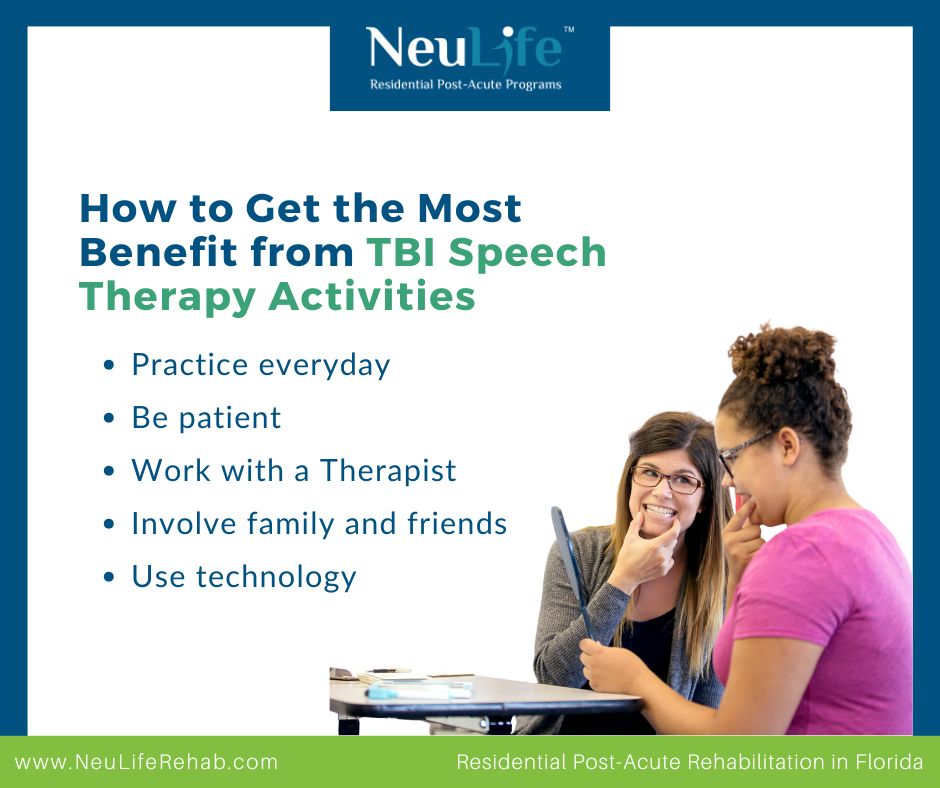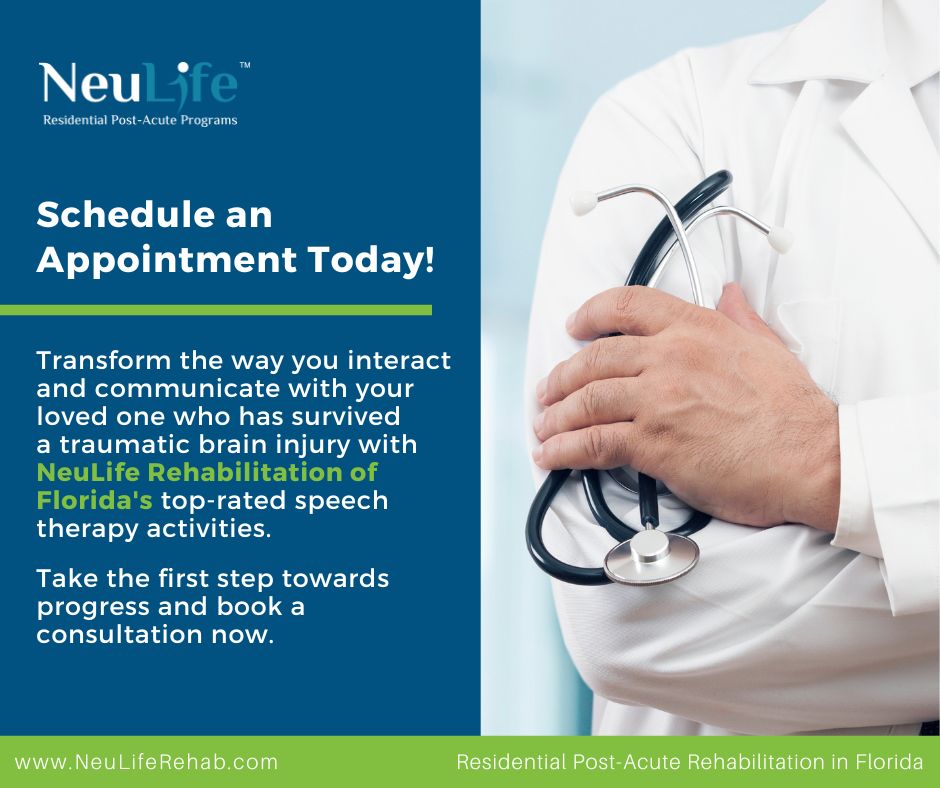Traumatic Brain Injury (TBI) can make it hard to speak, understand language, or even remember things. Speech therapy helps TBI survivors recover their communication skills. In this blog post, we’ll find and learn the best speech therapy activities for TBI survivors that help with aphasia, apraxia, and other speech challenges.
A brain injury can affect different brain parts, making speaking or understanding language difficult. TBI survivors may have trouble finding the right words, forming sentences, or pronouncing sounds clearly, often due to damage in areas of the brain that control language and speech muscles.
Everyday speech challenges after a TBI include aphasia, which affects understanding or using words; apraxia, which makes pronouncing words or sounds difficult; and dysarthria, which causes weakness in the muscles needed for speaking.

What is Aphasia? Aphasia is a language disorder caused by damage to the brain’s language centers. People with aphasia may have trouble speaking, understanding words, reading, or writing. It can be frustrating because the person knows what they want to say but can’t find the right words.
These are example therapy exercises for Aphasia.
Using word puzzles or apps helps improve vocabulary and word recall. These activities challenge the brain to remember words and their meanings. Word searches or crossword puzzles also encourage word retrieval, making it easier to recall words in everyday conversation.
Practice putting words together to form sentences. Start with simple sentences and work toward more complex ones. By practicing how words fit together, individuals with aphasia can become more confident in communicating in sentences rather than just isolated words.
Reading out loud helps improve word recognition and speech fluency. It’s also a great way to practice pronunciation and sentence structure. Repeating reading aloud supports the connection between written and spoken words, improving overall language comprehension.
Use pictures or photos and describe what’s happening in them. This helps with word recall, organizing thoughts, and forming meaningful sentences. It also strengthens the ability to articulate ideas effectively, improving spoken and written language.
Speech therapy activities help TBI survivors improve these skills, regain confidence, and communicate more easily.
A critical part of speech recovery after a TBI is strengthening your facial and mouth muscles. These muscles help you talk, chew, and swallow. If they become weak, it can make speaking harder. To help with this, several facial strengthening activities can improve muscle strength and coordination.
Incorporating these simple activities into a daily routine can help TBI survivors regain their speech clarity and muscle strength over time.
What is Apraxia? Apraxia is a motor speech disorder that makes coordinating the muscles needed for speaking hard. This means that even if the brain knows what to say, the mouth has trouble moving in the right way to say it. Apraxia after a TBI is common and can cause slurred speech or difficulty pronouncing words. Speech therapy activities can be very useful in helping with apraxia.
Repeating simple sounds or syllables like "ba," "pa," or "ma" helps retrain the brain and mouth muscles to produce speech more clearly. This strengthens speech production and muscle coordination over time.
Encouraging slow, deliberate speech helps with pronunciation and gives the brain more time to organize words and form clear sentences. This approach improves speech clarity by focusing on how each word is spoken.
Practicing tongue, lips, and jaw movements through exercises like saying "pa-ta-ka" can improve muscle coordination and rebuild motor control for more explicit speech. These exercises should be done slowly and carefully to reinforce proper muscle use.
Visual aids (like pictures) or tactile cues (such as gently guiding the jaw or mouth) can help remind the brain how to form specific sounds. These cues ensure the correct muscle movements are made when pronouncing certain words.
Through consistent practice and speech therapy, individuals with apraxia can improve their speech clarity, motor control, and confidence in communication.

Consistency and practice are essential to get the most out of speech therapy. Here are a few tips for maximizing the benefits of speech therapy activities:
Regular practice can lead to noticeable speech and language improvement, even for just a few minutes each day. The more you practice, the more progress you can make.
Recovery from TBI takes time, so it’s essential to stay patient and persistent. Celebrate small victories and focus on gradual improvement rather than expecting quick results.
A speech therapist can provide personalized guidance tailored to specific speech challenges. They can track progress, suggest helpful exercises, and give feedback on how to improve speech skills.
Practicing speech therapy activities with loved ones can provide additional support and motivation and make the process more enjoyable and rewarding.
Many apps and online tools are designed to make speech practice fun and interactive. These tools can be used at home or on the go to reinforce learning and provide extra practice outside therapy sessions.
Speech therapy plays a crucial role in the recovery process for TBI survivors. By practicing activities that target specific challenges like aphasia, apraxia, and muscle weakness, individuals can regain their ability to communicate more clearly and confidently. With time, patience, and consistent effort, TBI survivors can rebuild their speech and improve their quality of life.
If you or someone you care about is recovering from a brain injury, speech therapy can make a big difference. NeuLife Rehabilitation in Florida offers some of the best speech therapy activities to help TBI survivors speak and understand better and boost their confidence.
Whether you're looking for a neuro rehabilitation center or need support with post-acute rehabilitation, our expert team is ready to guide you through every step of recovery. Our TBI rehabilitation centers are designed to provide the best care and help you make real progress.
Don’t wait! Begin the journey to recovery today! Discover NeuLife Rehabilitation’s comprehensive programs designed specifically for TBI patients, including speech therapy activities to improve communication, memory, and overall cognitive function. Take the first step toward a better quality of life now!
Want to Visit NeuLife Rehabilitation? Schedule a tour NOW

***
The material on this site is for informational purposes only and DOES NOT CONSTITUTE THE PROVIDING OF MEDICAL ADVICE, and is not intended to be a substitute for independent professional medical judgment, advice, diagnosis, or treatment. Always seek the advice of your physician or other qualified healthcare provider with any questions or concerns you may have regarding your health.

We know that choosing the next step in your recovery from a catastrophic illness or injury is complex. Together, we can help you take the next step.
Contact us with any questions today.